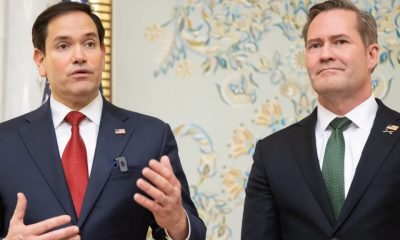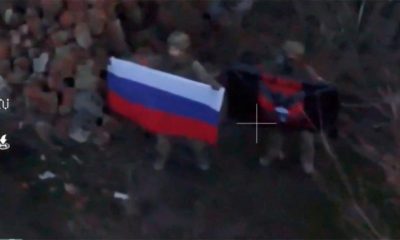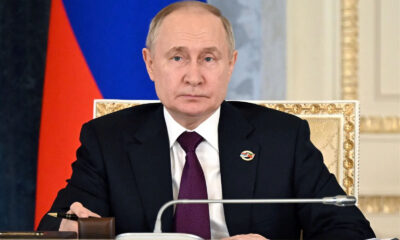International
Russia vows ‘tangible’ response against US missiles on its territory

Russia vows ‘tangible’ response against US missiles on its territory
Russia says the use of US long-range missiles by Ukraine will lead to “an appropriate and tangible” response.
Such an attack inside Russian territory “would represent the direct involvement of the United States and its satellites in hostilities against Russia”, a foreign ministry statement said.
President Joe Biden approved the use of the missiles on targets in Russia in a major change of US policy – two months before he is due to leave the White House.
It is not clear if his successor, President-elect Donald Trump, was consulted or whether he will stick by the decision, having promised to end the Russia-Ukraine war.
Ukraine has had US ATACMS (Army Tactical Missile System) with a range of 300km (190 miles) – as well as French and British Storm Shadow missiles of a similar range – but the Western allies had barred Kyiv from hitting Russia with them.
Biden’s decision to lift that condition is a significant moment in the war, which marks its 1,000th day on Tuesday.
READ ALSO:
- Portland Gas secures licence for CNG conversion centre
- EFCC says Nigerian lawyers, Int’l investors colluding to loot national treasury
- FBI arrests mastermind of Borno terrorist attack on Nigerian soldiers
Russia launched a full-scale invasion of Ukraine on 24 February 2022.
Moscow has now intensified attacks on Ukrainian infrastructure as the sides appear to have reached a stalemate on the battlefield.
The US decision also follows the arrival in Russia’s western Kursk region – where Ukrainian forces captured and are holding onto a small piece of territory – of more than 10,000 troops from North Korea to help President Vladimir Putin’s forces.
Unconfirmed reports say North Korea may send as many as 100,000 soldiers, in addition to artillery and other weapons to its ally.
Ukraine’s President Volodymyr Zelensky has indicated there may be no formal announcement of the US deal – “the missiles will speak for themselves,” he said on Sunday.
Ukraine may use the ATACMS in Kursk first – in fact some reports suggest the US may have restricted their use there as a signal to North Korea to stop sending aid to Russia and to Moscow itself.
Biden’s approval of the long-range missiles – which may be followed by similar authorisations by the UK and France – is being seen in the West as a way of signalling to the Russian leader that he cannot win the Ukraine war militarily.
Putin has not commented on the latest move.
In September, the Russian leader said the use of such missiles by Ukraine would represent the “direct participation” of Nato countries in the war.
On Monday, Putin’s spokesman said the US was “adding oil to the fire”.
But Jon Finer, US deputy national security adviser, said Washington had made it “clear to the Russians that we would respond” – both to the presence of North Korean forces and the “major escalation” in Russian aerial attacks on infrastructure across Ukraine.
The weekend saw intense Russian attacks against Ukraine’s power grid, causing large-scale blackouts. Several people were killed or injured.
On Monday, a Russian strike on Odesa killed another 10 people and injured nearly 50.
Donald Trump has not reacted to Biden’s decision so far.
He swept to victory on 5 November and will return to the White House on 20 January.
Trump has promised to end US involvement in foreign wars and use the taxpayers’ money to improve the lives of Americans.
He has also said he will end the Ukraine war within 24 hours, but has not given details how.
Zelensky recently said he expected Trump to exert pressure on Ukraine and Russia to agree a peace deal within the next year.
Biden’s decision was hailed by French President Emmanuel Macron as a “totally good” step.
The US authorisation could potentially enable France and the UK to grant Ukraine permission to use Storm Shadow missiles inside Russia. Storm Shadow is a Franco-British long-range cruise missile with similar capabilities to the ATACMS.
So far, neither Macron nor UK Prime Minister Sir Keir have publicly said whether they will allow Kyiv to use their missiles in the same way.
Meanwhile, China’s Xi Jinping urged world leaders to “cool the Ukraine crisis” and seek a political solution, according to Chinese state media.
China has become a vital partner for Russia, as it seeks to soften the impact of US and European sanctions imposed over its full-scale invasion of Ukraine.
Beijing has repeatedly denied allegations that it supplies Moscow with weapons.
Russia vows ‘tangible’ response against US missiles on its territory
BBC
International
US to Nigerians: Overstaying visa attracts permanent ban
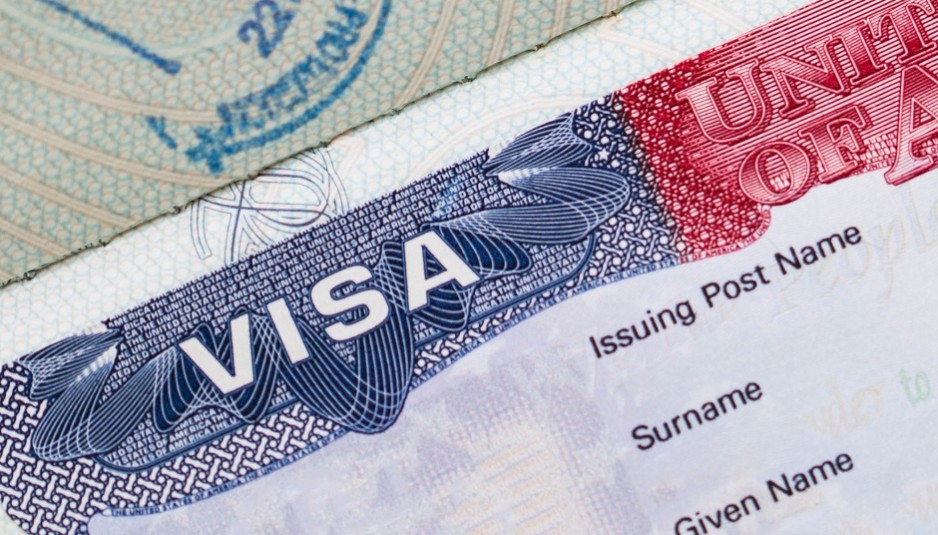
US to Nigerians: Overstaying visa attracts permanent ban
The US government has issued a harsh warning to Nigerian travelers about the serious repercussions of overstaying their visas, underlining that violators may face lifelong bans from re-entering the nation.
The US Mission in Nigeria issued the warning on Monday via its X.
The immigration authorities stressed that consular officials have access to an individual’s entire immigration history, making it practically impossible to dodge sanctions for previous infractions.
They also stated that passengers are responsible for conforming to the restrictions of their visa and that ignorance of visa regulations will not be recognised as an explanation.
“If you overstay your US visa, you could face a permanent ban on travelling to the United States. Consular officers have full access to your immigration history and will know about past violations. There is no such thing as an ‘honest mistake’ – it is your responsibility to use your visa correctly,” the US Mission stated.
READ ALSO:
- Nigerian doctor pioneers W’Africa first robotic prostate cancer surgery
- How 12 inmates escape in Kogi jailbreak – Prison spokesman
- Fubara: Supreme Court reacts to photo of Justice Agim with Wike
It was gathered that those who overstay their visa for more than 180 days but less than a year may face a three-year re-entry ban. If the overstay exceeds one year, the penalty could be a 10-year ban.
Repeat offenders and those with major offences face a permanent lifetime ban.
Since Trump’s return as president, America’s immigration policies have been stricter.
On February 16, 2025, the federal government expressed great concern regarding the deportation of its people from the United States, requesting Washington to follow international treaties and ensure a dignified repatriation procedure.
During a meeting with the US Ambassador to Nigeria, Richard Mills Jr, the Minister of State for Foreign Affairs, Ambassador Bianca Odumegwu-Ojukwu, underlined the emotional and financial hardship that these deportations are putting on Nigerians in the US and their families at home.
Odumegwu-Ojukwu stated that “about 201 Nigerians are currently detained in US immigration centres, with around 85 cleared for deportation,” adding that the government was advocating for a more humane approach to the process.
“With the new US administration in place, we expect commitments to ensure that, if repatriation occurs, it will be done with dignity,” she said.
Odumegwu-Ojukwu emphasised that many Nigerians in the US rely on remittances to support their families and education back home.
She also emphasised that deportations, particularly for those with no violent criminal history, should not be abrupt or traumatic.
“We are asking as a country whether they will be given ample time to handle their assets, or will they just be bundled into planes and repatriated?” She questioned.
US to Nigerians: Overstaying visa attracts permanent ban
International
2 Nigerians in US face heavy jail term over fraud
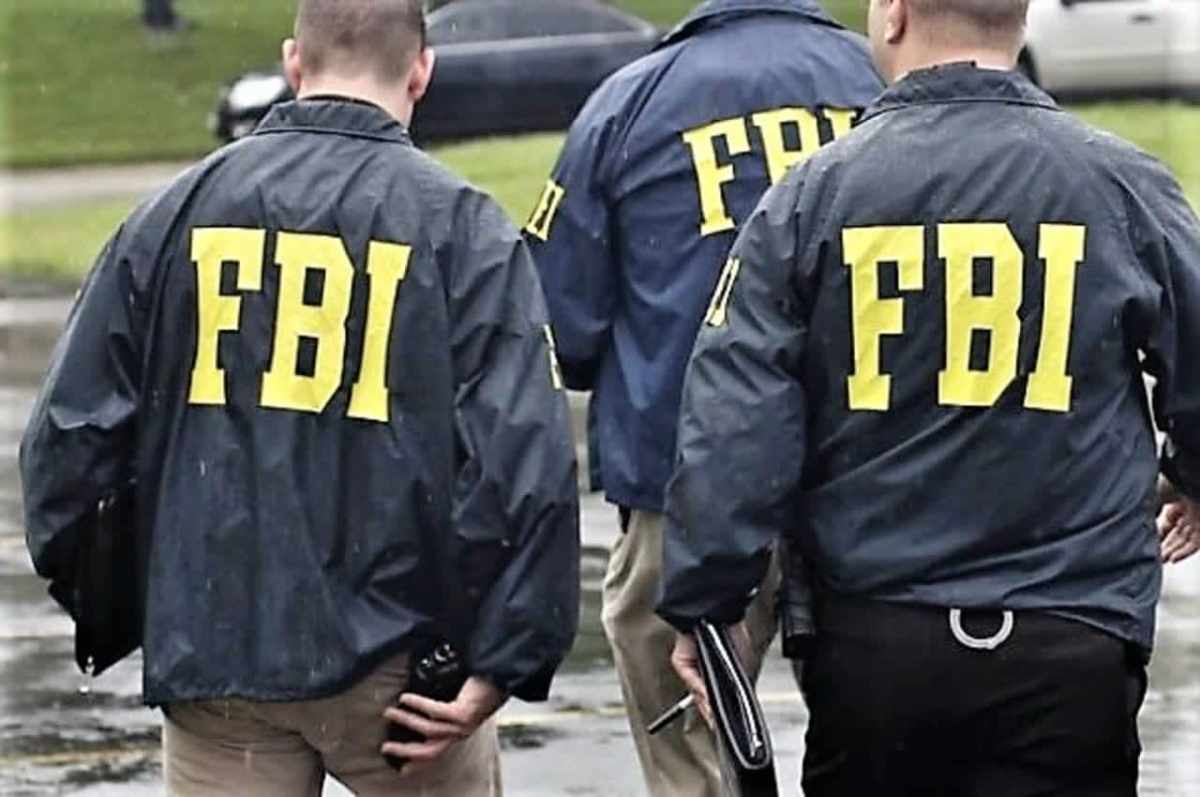
2 Nigerians in US face heavy jail term over fraud
Two Nigerian nationals based in the United States, Solomon Aluko and Nosakhare Nobore, alongside four others, are facing a possible 62-year prison sentence each after being arraigned before a New York court for allegedly defrauding the U.S. government of $50 million.
It was gathered from a court document obtained on the US Department of Justice website on Sunday that the suspects were arraigned on four counts bordering on conspiracy to commit wire fraud and bank fraud, conspiracy to commit money laundering, engaging in a monetary transaction in property derived from specified unlawful activity, conspiracy to defraud the government, and aggravated identity theft.
The court document indicated that the suspects committed the offences between March 2020 and March 2025, in the Southern District of New York and across other places in the US.
The charge sheet noted that “the defendants, and others, worked together to steal money that did not belong to them by passing counterfeit, stolen, and fraudulently obtained cheques. They submitted the cheques to banks and then withdrew or transferred funds before the banks could determine that the cheques were counterfeit, stolen, or fraudulent.”
According to the document, the defendants allegedly stole information and identities of different individuals and businesses and used the information and identities to open bank accounts through one of their members, who was a bank teller at the time.
The bank accounts were allegedly used to deposit fraudulently obtained cheques from different US agencies.
It continued, “Once the cheques were deposited, the defendants withdrew the fraudulently obtained funds in cash or transferred them to other bank accounts under their control.
“Throughout their scheme, the defendants attempted to obtain approximately $80 million in total. They succeeded in depositing approximately $50 million.”
In a statement accompanying the document on the DoJ website, it was revealed that the suspects created a ‘fraud bible’, which contained specific instructions on how each member of the syndicate would operate.
READ ALSO:
- Canada denies 13,000 Nigerians refugee status
- Lagos Govt to redesign Oshodi motor park for rail integration
- Nurse punished in UK for addressing convicted transgender paedophile as ‘Mr’
- Ex-LG chair challenges El-Rufai’s claims on council funds
It further noted that the syndicate also openly communicated its operations via a Telegram group where discussions on their operations were held.
Commenting on the activities of the syndicate, the statement quoted the US FBI Acting Assistant Director, Leslie R. Backschies, as saying, “These six defendants allegedly used sham businesses, stolen, and fake identities to operate a multi-year cheque fraud scheme, resulting in $50 million in illicit funds being deposited into their accounts.
“The defendants brazenly attempted to exploit multiple United States government programmes in their attempts to illegally enrich themselves. The FBI will continue to ensure fraudsters attempting to lie, cheat, and steal from the government answer for their crimes in the criminal justice system.”
Similarly, the US IRS Special Agent in Charge of the case, Harry Chavis, said, “This group of suspects openly communicated about their fraud, taking pride in the multiple schemes that stole nearly $50 million from the American public.
“They lied and cheated a benefits system meant to help struggling businesses that need it, all while stealing cheques from agencies that assist the elderly and veterans. This gang of ‘bag hunters’ will now face justice for multiple charges.”
Following their indictment, the statement noted that the suspects could be sentenced to 62 years imprisonment each for the four counts.
It acknowledged that the defendants were presumed innocent until proven guilty by the court.
“Anand, 34, of Queens, New York; Nobore, 29, of Edgewater, New Jersey; Pappas, 28, of Miami, Florida; Ujkic, 44, of Ft. Lauderdale, Florida; Aluko, 29, of Hackensack, New Jersey; and Gonzalez, 28, of North Bergen, New Jersey, are each charged with conspiracy to commit wire fraud and bank fraud, which carries a maximum sentence of 30 years in prison; conspiracy to commit money laundering and engaging in a monetary transaction in property derived from specific unlawful activity, which carries a maximum sentence of 20 years in prison; conspiracy to defraud the government, which carries a maximum sentence of 10 years in prison; and aggravated identity theft, which carries a mandatory sentence of two years in prison.
“The maximum potential sentences are prescribed by Congress and are provided here for informational purposes only, as any sentencing of the defendants will be determined by a judge.
“The charges contained in the indictment are merely accusations, and the defendants are presumed innocent unless and until proven guilty,” the statement concluded.
2 Nigerians in US face heavy jail term over fraud
(Punch)
International
Canada denies 13,000 Nigerians refugee status
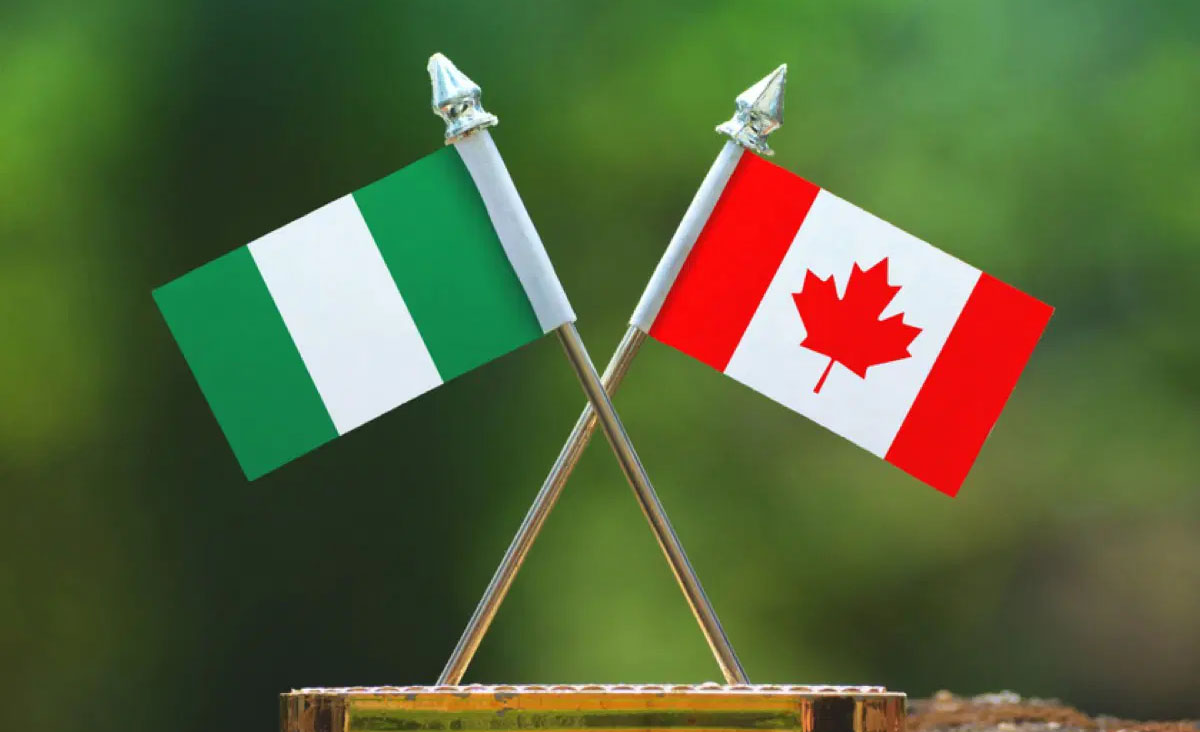
Canada denies 13,000 Nigerians refugee status
Over 13,000 Nigerians who applied for refugee protection in Canada from January 2013 to December 2024 were rejected.
According to data from the Refugee Protection Division (RPD) of the Immigration and Refugee Board of Canada, this figure includes 811 Nigerians whose applications were turned down in 2024.
The board placed Nigeria among the top five countries with the most rejected claims.
Mexico tops the list with 2,954 rejections, followed by India and Haiti, which have 1,688 and 982 rejected claims, respectively.
Colombia is in fourth place with 723 rejected claims, while Nigeria is in fifth place with 13,171 rejections.
In Canada, asylum seekers get refugee protection if the RPD satisfactorily confirms that their claims meet the United Nations definition of a Convention refugee.
In its definition of the Status of Refugee, the 1951 UN Convention states refugees are persons who have a substantiated fear of persecution because of their race, nationality, religion, political ideology or membership in a particular social group, which can include sexual orientation, gender identity, being a woman and persons living with HIV/AIDS.
READ ALSO:
- Lagos Govt to redesign Oshodi motor park for rail integration
- Nurse punished in UK for addressing convicted transgender paedophile as ‘Mr’
- Ex-LG chair challenges El-Rufai’s claims on council funds
However, in Canada, asylum seekers are expected to show evidence that they are in danger of torture, risk to their life or risk of cruel and unusual treatment or punishment if they return to their country of nationality.
According to the Refugee Board’s application guideline, if an applicant’s “claim is eligible, it is sent to the RPD to start the claim for refugee protection process.”
The breakdown of the rejections showed that 127 Nigerian claims were rejected in 2013, 241 in 2014 and 248 in 2015.
Canada denies 13,000 Nigerians refugee status
-

 metro2 days ago
metro2 days agoCourt refers Ojukwu property case to alternative dispute resolution
-

 Entertainment2 days ago
Entertainment2 days agoSome ladies in movie industry ready to sleep their way to fame — Jide Kosoko
-
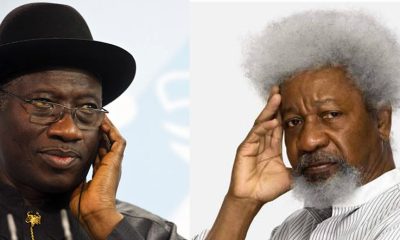
 metro2 days ago
metro2 days agoPresidency blasts Jonathan, Soyinka over comments on emergency rule in Rivers
-

 metro13 hours ago
metro13 hours agoAttack on Mufty of Ilorin: Onikijipa Family Charges Stakeholders to Call Sheikh Habibullahi Al-Ilory to Order
-

 Health19 hours ago
Health19 hours agoNigerian doctor pioneers W’Africa first robotic prostate cancer surgery
-
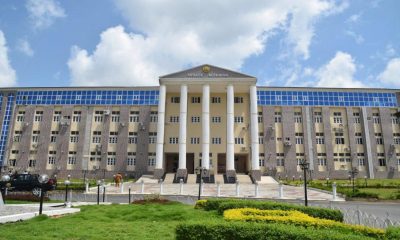
 metro2 days ago
metro2 days agoAdeleke University didn’t suspend Muslims for praying – MSSN
-
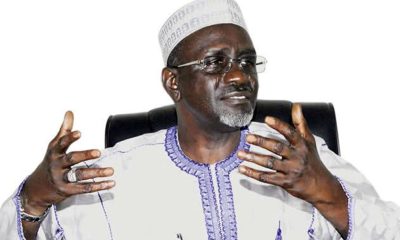
 Politics3 days ago
Politics3 days agoAtiku, Obi, El-Rufai’s coalition can’t unseat Tinubu – Shekarau
-

 metro3 days ago
metro3 days agoDisregard court order against Rivers Administrator, says Fubara’s aide



